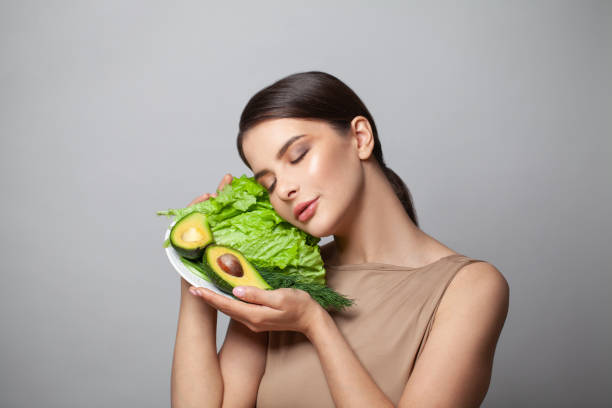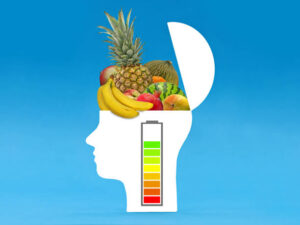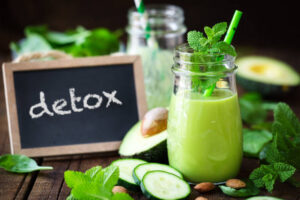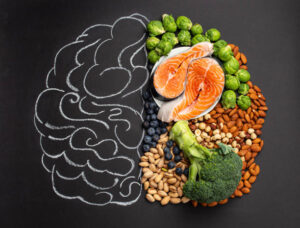Achieving healthy, glowing skin often seems tied to expensive products and elaborate routines. But what if the secret lies in your plate rather than your bathroom cabinet? A vegan diet—one centered on plant-based foods—has been gaining attention for its potential to transform skin health.
How Your Diet Influences Skin Health
Your skin reflects what’s happening inside your body. Foods rich in nutrients like antioxidants, healthy fats, and vitamins fuel skin cells. Conversely, processed foods, dairy, and sugar can trigger inflammation, leading to acne, dullness, and premature aging.
By adopting a vegan diet—focused on whole, plant-based foods—you eliminate many inflammatory triggers while nourishing your skin with essential nutrients. To help you through your plant-based journey, check out How to Go Vegan: A Comprehensive Guide for Beginners.
The Science Behind Vegan Diets and Skin Health

There are several skin benefits of a vegan diet, including:
High in Antioxidants
Antioxidants like Vitamins C, E, and beta-carotene, abundant in fruits and vegetables, protect your skin from oxidative stress. This reduces the impact of environmental factors like UV rays and pollution.
Reduces Inflammation
Animal products, especially dairy and processed meats, have been linked to inflammation that manifests as acne, redness, and irritation. A vegan diet eliminates these triggers and provides anti-inflammatory compounds like polyphenols.
Boosts Hydration
Many plant-based foods, such as cucumbers, watermelon, and leafy greens, have high water content, which hydrates your skin from within, enhancing elasticity and reducing dryness.
Enhances Collagen Production
While collagen itself comes from animal products, plants like citrus fruits and bell peppers are rich in Vitamin C, which supports your body’s natural collagen production, keeping skin firm and youthful.
Does a Vegan Diet Make You Look Younger?
Absolutely. A 2020 report from the American Journal of Clinical Nutrition found that diets rich in plant-based antioxidants significantly improved skin elasticity and reduced signs of aging. These antioxidants fight free radical damage, a major contributor to wrinkles and fine lines. Foods like berries, nuts, and leafy greens help your skin maintain elasticity and hydration.
The Role of Gut Health in Skin Transformation
The health of your gut microbiome plays a crucial role in skin health. A vegan diet, rich in fiber from fruits, vegetables, and whole grains, supports a balanced gut microbiome. This reduces systemic inflammation and improves skin clarity.
Incorporating vegan probiotic-rich foods like kimchi, sauerkraut, and kombucha further enhances gut health, which directly impacts your skin’s appearance.
Practical Tips for Using a Vegan Diet to Transform Your Skin
Foods to Prioritize
- Leafy Greens: Kale, spinach, and Swiss chard have skin-loving antioxidants.
- Fruits: Berries, oranges, and papaya provide hydration and vitamins.
- Nuts and Seeds: Almonds, sunflower, and chia seeds are rich in Vitamin E and healthy fats.
- Legumes: Lentils and chickpeas offer zinc, a crucial nutrient for skin repair.
Foods to Avoid
- Processed vegan foods (like vegan junk food) that are high in sugar and low in nutrients.
- Overloading on soy-based products might affect hormone levels in sensitive individuals.
Sample Meal Plan for Radiant Skin
- Breakfast: A smoothie bowl with spinach, banana, mixed berries, and flaxseeds.
- Lunch: A quinoa salad with roasted vegetables, chickpeas, and avocado.
- Dinner: Sweet potato curry with lentils and steamed broccoli.
- Snacks: Almonds, walnuts, or carrot sticks with hummus.
Supporting Vegan Skincare with Products
While diet plays a significant role, choosing vegan skincare products enhances the results. Look for products with natural ingredients like aloe vera, green tea extract, and jojoba oil. Brands like Pacifica and The Ordinary offer cruelty-free products with plant-based ingredients to target fine lines and wrinkles.
Does a Vegan Diet Clear Skin?
Yes, a vegan diet can significantly improve skin clarity, particularly for those struggling with acne and breakouts. This is primarily due to the elimination of common dietary triggers, the inclusion of nutrient-dense foods, and the anti-inflammatory effects of plant-based eating. Let’s delve into how this works.
Eliminating Acne Triggers
One of the biggest culprits behind acne is dairy. Numerous studies have linked dairy consumption to hormonal imbalances that trigger excess sebum production and inflammation, contributing to breakouts. By removing dairy from your diet—a cornerstone of veganism—you eliminate one of the main dietary causes of acne.
Moreover, many processed animal products are high in saturated fats and hormones, which can further disrupt the skin. A vegan diet eliminates these inflammatory triggers, replacing them with plant-based alternatives that support skin health.
Flooding the Body with Antioxidants
Fruits, vegetables, and whole grains—staples of a vegan diet—are rich in antioxidants like vitamins C, E, and beta-carotene. These nutrients help neutralize free radicals, which can cause oxidative stress and worsen skin conditions like acne. Antioxidants also promote skin healing, reduce redness, and prevent scarring.
Balancing Hormones Naturally
Hormonal fluctuations often play a significant role in acne development. Foods like leafy greens, flaxseeds, and walnuts are rich in phytonutrients and healthy fats that help stabilize hormone levels naturally. By adopting a vegan diet, you nourish your body with these essential nutrients while avoiding hormone-disrupting animal products.
Hydration from Plant-Based Foods
Many plant-based foods, such as cucumbers, watermelon, and leafy greens, have high water content, which keeps your skin hydrated and supports its natural barrier function. Proper hydration is essential for preventing clogged pores and promoting clear, supple skin.
Real-World Evidence: Vegan Diet and Acne Improvements
A 2018 study published in JAMA Dermatology revealed a strong link between dairy consumption and acne severity. Participants who eliminated dairy from their diet reported significant improvements in their skin within just a few weeks. Similarly, testimonials from individuals who switched to a vegan diet often highlight clearer, more radiant skin as one of the first noticeable changes.
Common Challenges with Vegan Diets for Skin Health
While a vegan diet offers impressive benefits, there are challenges to navigate for optimal vegan diet and skin health. Addressing these can help you get the most out of this lifestyle:
1. Nutrient Deficiencies
Some nutrients essential for skin care, like Vitamin B12, Omega-3s, and zinc, are harder to obtain in a plant-based diet. A lack of these can impact your skin’s hydration, elasticity, and repair processes.
Solution: Include fortified foods, supplements, and nutrient-rich options like chia seeds, walnuts, and legumes to maintain a balance between your vegan diet and skin needs.
2. Reliance on Processed Vegan Foods
Processed vegan alternatives may seem convenient, but they often contain unhealthy fats, sugar, and salt, which can negatively impact your skin care routine by causing breakouts or dullness.
Solution: Focus on whole, unprocessed foods that align with both your health goals and vegan diet and skincare aspirations.
3. Food Sensitivities
Common vegan staples like soy or nuts may trigger reactions in sensitive individuals, affecting skin health.
Solution: Pay attention to how your skin responds to different foods and find suitable replacements, like almond milk or quinoa, to support your plant-based skin care.
4. Low-Calorie Intake
Not eating enough calories can lead to inadequate nutrient absorption, causing issues like dry or lackluster skin.
Solution: Balance your vegan diet and skin health by incorporating calorie-dense foods like avocados, seeds, and whole grains.
5. Unrealistic Expectations
Although a vegan diet supports healthy skin, it’s not a standalone solution for all skin issues. Genetics, skincare routines, and overall lifestyle play significant roles too.
Solution: Pair your vegan diet and skincare routine with hydration, stress management, and proper rest for holistic results.
How Long Does It Take to See Results?

Transforming your skin with a vegan diet takes time, as it depends on individual factors like your current diet, lifestyle, and skin condition. Here’s a realistic timeline to set expectations for vegan diet and skin health improvements:
Short-Term Results (2–4 Weeks)
- Clearer Skin: Cutting out dairy and processed foods reduces inflammation and acne within weeks.
- Hydration Boost: Water-rich plant-based foods like cucumbers and leafy greens enhance skin’s natural glow quickly.
Medium-Term Results (4–8 Weeks)
- Improved Tone and Texture: Antioxidants from fruits and vegetables reduce redness, while whole grains help smooth the skin.
- Enhanced Repair: Nutrients in a vegan diet like zinc and Vitamin C accelerate healing and reduce scars.
Long-Term Results (3–6 Months)
- Anti-Aging Effects: Consistent Vitamin C and hydration from plant-based skin care diets promote collagen production, reducing fine lines.
- Healthy Glow: A fiber-rich vegan diet and skincare regimen leads to balanced gut health, which reflects in a clearer complexion.
Tip: For sustained benefits, combine your vegan diet with a consistent plant-based skin care routine, staying hydrated and avoiding inflammatory triggers. Patience and consistency will reward you with lasting, radiant skin.
Practical Tips for Clearer Skin on a Vegan Diet
- Focus on Whole Foods: Avoid vegan junk food, which can still be high in sugar and refined ingredients that trigger acne.
- Boost Omega-3 Intake: Incorporate chia seeds, flaxseeds, and walnuts to reduce inflammation.
- Eat the Rainbow: Consume various colorful fruits and vegetables to maximize antioxidant intake.
- Stay Hydrated: Drink plenty of water and include hydrating foods in your meals.
FAQs
Q1: Does a vegan diet help your skin?
Yes! A vegan diet reduces inflammation, provides essential nutrients, and improves hydration, all of which benefit your skin.
Q2: Can a vegan diet reverse skin aging?
While it won’t reverse aging, it can slow the process by boosting collagen production and reducing oxidative stress.
Q3: How soon will I see results?
Most people notice improvements in their skin within 4–6 weeks of adopting a vegan diet.
Q4: Are supplements necessary on a vegan diet for skin health?
While most nutrients can be obtained from food, supplements like Vitamin B12 and Omega-3s are helpful for overall health.
Q5: Are there risks to skin health on a vegan diet?
Yes, if not properly planned, a vegan diet can lead to deficiencies in nutrients like Vitamin B12, Omega-3s, zinc, and iron, which may affect skin health. Avoid processed vegan foods high in sugar, and focus on whole, nutrient-dense foods to minimize risks.
Q6: What about vegan diets and other skin conditions like rosacea?
A vegan diet can help reduce rosacea symptoms due to its anti-inflammatory properties. However, certain plant-based foods like tomatoes and citrus may trigger flare-ups in some individuals.
Conclusion
A vegan diet is more than a lifestyle choice—it’s a powerful tool for transforming skin. By prioritizing whole, nutrient-dense foods, you can achieve clearer, healthier, and more youthful skin naturally. Pair your diet with plant-based skincare products for optimal results, and watch your complexion glow.
For those still on the fence, why not try a vegan diet for 30 days and see the transformation yourself? Your skin—and the planet—will thank you.







